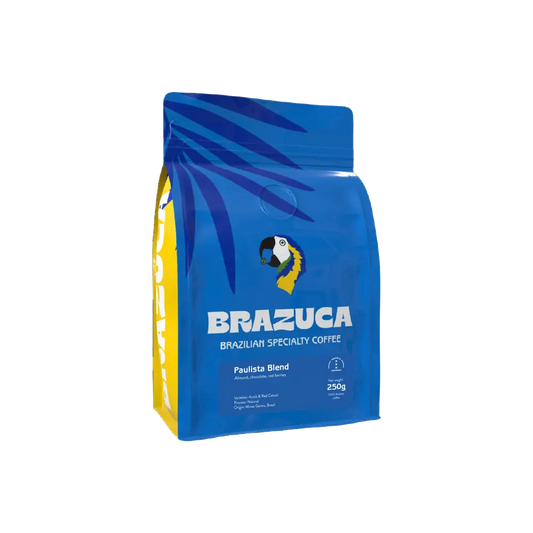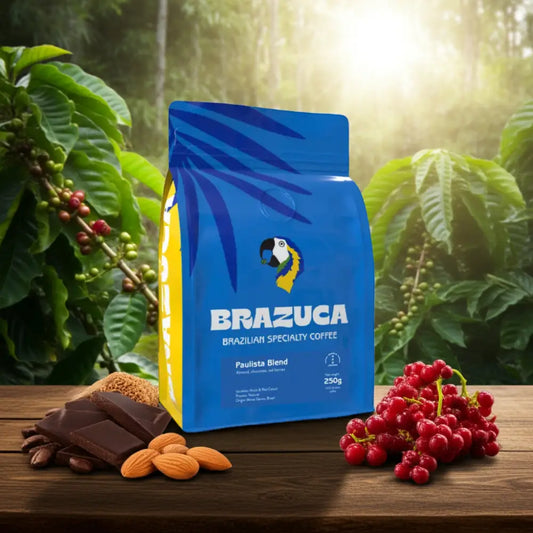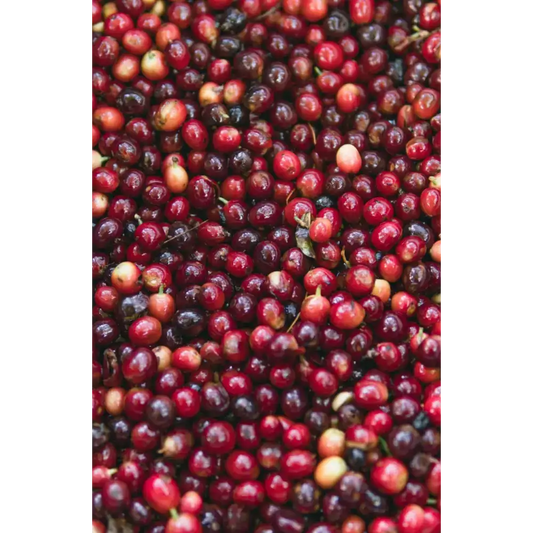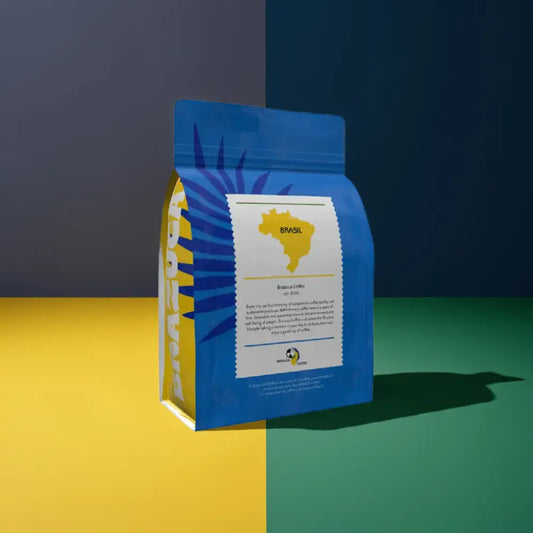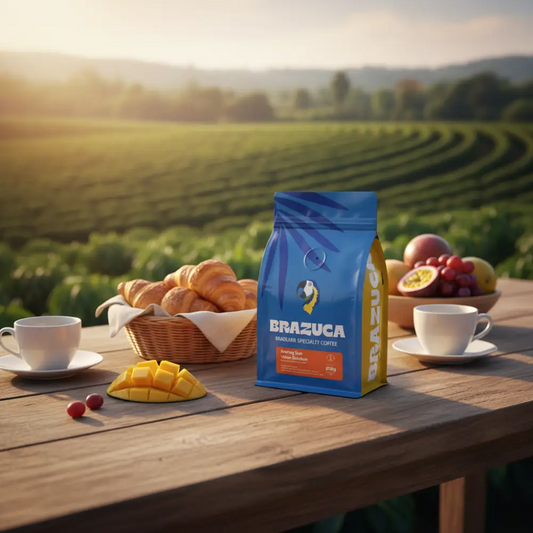
The Evolution of Brazilian Specialty Coffee: From Commodity to Craft
Share
Brazil is synonymous with coffee. For more than a century, this vast South American country has been the world's largest producer, supplying nearly a third of the global coffee market. However, for much of its history, Brazil's coffee was viewed primarily as a commodity—a mass-produced product that emphasized quantity over quality. Today, the landscape has dramatically changed. Brazilian specialty coffee, celebrated for its rich flavors and diversity, has earned its place among the world's best. This transformation from bulk commodity to artisanal craft is a story of innovation, dedication, and a deep connection to the land.
The Early Days: Coffee as a Commodity
Coffee was introduced to Brazil in the 18th century, and by the 19th century, it had become the country's most important export. The favorable climate, coupled with vast tracts of arable land, allowed Brazil to dominate global coffee production. The focus during these early years was on maximizing output to meet the insatiable demand from Europe and the United States. Quality control was secondary to yield, and as a result, Brazilian coffee became known for its consistent, if unremarkable, flavor profile.
The coffee plantations, or *fazendas*, operated on a large scale, often using slave labor until its abolition in 1888. The emphasis was on efficiency and volume, with little attention paid to the nuances of flavor or the unique characteristics of different coffee-growing regions. This approach positioned Brazil as a powerhouse in the coffee industry, but it also pigeonholed its coffee as a commodity—reliable, but undistinguished.
The Shift Begins: The Birth of Specialty Coffee
The seeds of Brazil's specialty coffee movement were planted in the late 20th century. As global tastes began to shift toward higher quality and more diverse coffee experiences, Brazil's coffee industry started to explore ways to elevate its product. The Specialty Coffee Association of America (SCAA), founded in 1982, played a significant role in this shift by promoting the appreciation of coffee as a complex beverage with unique flavors, much like wine.
In Brazil, this period saw the emergence of small-scale farmers and cooperatives dedicated to improving the quality of their beans. These pioneers focused on better agricultural practices, such as selective picking (only harvesting ripe cherries) and improved processing methods. They also began to experiment with different coffee varieties and processing techniques, such as natural and pulped natural processes, which have since become hallmarks of Brazilian specialty coffee.
The 21st Century: A Specialty Coffee Powerhouse
The early 2000s marked a turning point for Brazilian specialty coffee. Farmers across the country began to adopt more sustainable and quality-focused practices, and the government, along with various coffee organizations, provided support through education and certification programs. The creation of competitions like the Cup of Excellence in 1999 further incentivized quality improvement by offering recognition and financial rewards to top producers.
These efforts have paid off. Today, Brazil is recognized not just for its sheer volume of coffee production, but for the exceptional quality of its beans. Brazilian specialty coffee is known for its full-bodied, chocolatey, and nutty flavors, often with a smooth finish. However, the diversity of Brazil's coffee-growing regions—such as Minas Gerais, São Paulo, Bahia, and Espírito Santo—means that there is also a wide range of flavor profiles, from bright and fruity to deep and earthy.
The Role of Innovation and Sustainability
Innovation has been a key driver in the rise of Brazilian specialty coffee. From the development of new coffee varieties to advances in processing and drying techniques, Brazilian producers have continually pushed the boundaries of what their coffee can be. This spirit of innovation extends to sustainability as well. With growing global concern over climate change and environmental degradation, many Brazilian coffee farmers are adopting practices that protect the environment, such as shade-grown coffee, organic farming, and water conservation methods.
Moreover, Brazil's specialty coffee sector has embraced the concept of traceability, allowing consumers to know exactly where their coffee comes from and how it was produced. This transparency not only adds value to the product but also strengthens the connection between the coffee drinker and the farmer, fostering a deeper appreciation for the work that goes into every cup.
The Future of Brazilian Specialty Coffee
The journey of Brazilian specialty coffee from a bulk commodity to a celebrated artisanal product is a testament to the country's resilience and adaptability. As global coffee culture continues to evolve, Brazil is well-positioned to remain a leader in both production and innovation. The continued focus on quality, sustainability, and transparency ensures that Brazilian specialty coffee will not only maintain its place on the world stage but also continue to surprise and delight coffee lovers everywhere.
The history of Brazilian specialty coffee is still being written, and as the industry faces new challenges and opportunities, one thing remains certain: Brazil will continue to shape the future of coffee, one exceptional cup at a time.
The Early Days: Coffee as a Commodity
Coffee was introduced to Brazil in the 18th century, and by the 19th century, it had become the country's most important export. The favorable climate, coupled with vast tracts of arable land, allowed Brazil to dominate global coffee production. The focus during these early years was on maximizing output to meet the insatiable demand from Europe and the United States. Quality control was secondary to yield, and as a result, Brazilian coffee became known for its consistent, if unremarkable, flavor profile.
The coffee plantations, or *fazendas*, operated on a large scale, often using slave labor until its abolition in 1888. The emphasis was on efficiency and volume, with little attention paid to the nuances of flavor or the unique characteristics of different coffee-growing regions. This approach positioned Brazil as a powerhouse in the coffee industry, but it also pigeonholed its coffee as a commodity—reliable, but undistinguished.
The Shift Begins: The Birth of Specialty Coffee
The seeds of Brazil's specialty coffee movement were planted in the late 20th century. As global tastes began to shift toward higher quality and more diverse coffee experiences, Brazil's coffee industry started to explore ways to elevate its product. The Specialty Coffee Association of America (SCAA), founded in 1982, played a significant role in this shift by promoting the appreciation of coffee as a complex beverage with unique flavors, much like wine.
In Brazil, this period saw the emergence of small-scale farmers and cooperatives dedicated to improving the quality of their beans. These pioneers focused on better agricultural practices, such as selective picking (only harvesting ripe cherries) and improved processing methods. They also began to experiment with different coffee varieties and processing techniques, such as natural and pulped natural processes, which have since become hallmarks of Brazilian specialty coffee.
The 21st Century: A Specialty Coffee Powerhouse
The early 2000s marked a turning point for Brazilian specialty coffee. Farmers across the country began to adopt more sustainable and quality-focused practices, and the government, along with various coffee organizations, provided support through education and certification programs. The creation of competitions like the Cup of Excellence in 1999 further incentivized quality improvement by offering recognition and financial rewards to top producers.
These efforts have paid off. Today, Brazil is recognized not just for its sheer volume of coffee production, but for the exceptional quality of its beans. Brazilian specialty coffee is known for its full-bodied, chocolatey, and nutty flavors, often with a smooth finish. However, the diversity of Brazil's coffee-growing regions—such as Minas Gerais, São Paulo, Bahia, and Espírito Santo—means that there is also a wide range of flavor profiles, from bright and fruity to deep and earthy.
The Role of Innovation and Sustainability
Innovation has been a key driver in the rise of Brazilian specialty coffee. From the development of new coffee varieties to advances in processing and drying techniques, Brazilian producers have continually pushed the boundaries of what their coffee can be. This spirit of innovation extends to sustainability as well. With growing global concern over climate change and environmental degradation, many Brazilian coffee farmers are adopting practices that protect the environment, such as shade-grown coffee, organic farming, and water conservation methods.
Moreover, Brazil's specialty coffee sector has embraced the concept of traceability, allowing consumers to know exactly where their coffee comes from and how it was produced. This transparency not only adds value to the product but also strengthens the connection between the coffee drinker and the farmer, fostering a deeper appreciation for the work that goes into every cup.
The Future of Brazilian Specialty Coffee
The journey of Brazilian specialty coffee from a bulk commodity to a celebrated artisanal product is a testament to the country's resilience and adaptability. As global coffee culture continues to evolve, Brazil is well-positioned to remain a leader in both production and innovation. The continued focus on quality, sustainability, and transparency ensures that Brazilian specialty coffee will not only maintain its place on the world stage but also continue to surprise and delight coffee lovers everywhere.
The history of Brazilian specialty coffee is still being written, and as the industry faces new challenges and opportunities, one thing remains certain: Brazil will continue to shape the future of coffee, one exceptional cup at a time.


